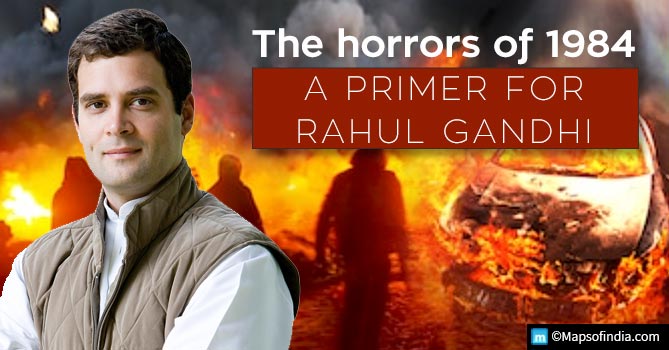CAG Audit reports intend to nail the UPA II Government:
The UPA II Government has attracted much flak and criticism during its tenure as the ruling Government of India, owing to an increased rate of corruption and the disclosure of several scams with deep political nexus. Recently in yet another instance of lack of financial transparency of the existing Government, the Comptroller and Auditor General (CAG) has stumbled upon a massive under application of financial resources apportioned for the Mahatma Gandhi National Rural Employment Guarantee Scheme (MGNREGS) in Rajasthan. As per the recent CAG reports, underutilized funds amounting to Rs 1,143 crores were lying idle in the MGNREGS accounts as of March 2012. While the MGNREGS happens to be a pilot project of the UPA II Government, the CAG report had underlined the consistent underutilization of the funds earmarked for the MGNREGS.
The CAG report had also manifested serious concernment regarding the continual procrastinations in the disbursement, a profusion of the expenses and total ineptitude in overseeing the scheme. Brushing off the State’s appeal that the funds were strictly claim – oriented and could have been carried forward if necessary, the CAG report had declared, “…..actual employment was 96% to the 100% of employment demanded during 2006 – 07 to 2011 – 12 , which indicates that the labor budget was prepared in excess of the previous year’s employment”. Openly defying the mandates of the said scheme, the State was 289 days late in releasing its 25% share of Rs784.65 crore, in contrary to the scheduled period of 15 days of releasing the Center’s share of 75%, as per the guidelines of the scheme. The State has come up with the lame excuse of complicated allocation methods to account for the delay.
Their seems to be little reprieve for the UPA II Government as six more audit reports are awaiting to be submitted during the present winter session of the Parliament, and at least two of the reports are expected to accuse the UPA II Government of extremely flawed policy implementations that had resulted in the revenue losses amounting to thousands of crores. One of the two above – mentioned reports deals with the Government exchequer loss of Rs 17,000 crores as a result of the dichotomous policy of the Railways for the freightage of iron ore. The companies utilizing the services of the Indian Railways for moving iron ore essentially meant for domiciliary utilization are levied at a considerable lower rate, while the companies moving iron ore for eventual transshipment (export) are charged a much higher rate. The CAG audit was carried out at only 26 out of the 75 loading hubs and 10 out of the 41 unloading hubs. The audit results point out now that, the exactable exchequer by the Government may well be a staggering Rs 50,000 crore. The audit report also highlights the possibilities of a large scale corruption and cartelization that had existed since 2008 when the Railways introduced such dual rate schemes.
The other audit reports details how the Government had parted with more than Rs 3000 crores as tax waivers for certain non – commendable large charitable corporations and trusts. The CAG had audited nearly 80, 000 of the 6 lakh such existing registered trusts. Among the dubious trusts unearthed by CAG were some of the charitable trusts under the Tata Group. The CAG reports had verified that, the said trusts had made investitures amounting to more than Rs 3,000 crores, in investment options that cannot even remotely be described as charitable actions. The Government has instituted strict measures to exact an income tax of Rs 1000 crores from the Tata group. The Tata group had admitted to the said tax evasive actions and has lodged an appeal against the Government order.
Several trusts and NGOS, which had received extensive foreign donations in the last ten years, are also in the suspect lists of the CAG.
Delhi Assembly elections – the speculations and the reality:
Delhi Assembly elections were being looked upon with added interest by the politicians as the results may prove to be an indicator of the shifting choices of the urban vote bank. Out of the total 70 seats, BJP had furnished candidates for 66 constituencies while the Congress and the AAP had fielded for all the 70 seats. BSP had furnished candidates for 69 seats, NCP for 9 and the Samajwadi Party for 27 seats including 224 independent candidates in this electoral contest. While Chief Minister Sheila Dixit, with three sequent wins in her bag, was confident that the accomplishments of the Congress party itself will be sufficient to turn the vote bank in her favor, BJP had a different version. BJP had claimed that their emergence as the majority in the municipal elections of the city, where BJP had captured all the three municipalities of Delhi, was indicative of the changing attitude of the public and the harbinger for radical changes. AAP’s campaign was based on the promises of a corruption free government, a 50 percent reduction of the power costs and 700 liters of potable water for every family.
The results of the election turned out to be quite unprecedented. The AAP made a smashing debut grabbing 28 seats while Sheila Dixit, who had commented that the AAP was unworthy of even being on the radar of the Congress Party, lost the New Delhi Constituency by more than 20, 000 votes to Arvind Kejriwal. Sheila Dixit, after fifteen years tenure, resigned from the post of the Chief Minister of Delhi. BJP finished just short of the winning tape with 32 seats. In the event of Arvind Kejriwal and his AAP declining to form a Government by getting into ties with any other party, which seems to be the case, a President’s Rule will be imposed on Delhi, as per the Constitution, for six months while a re-election procedure will be implemented. Congress was ousted from the contest ending up with only 8 seats.
Congress President Sonia Gandhi had no choice but to accept the crushing defeat of the Congress diplomatically while she managed to reluctantly congratulate the AAP.
Appreciating the sensational debut of the AAP, the Congress Vice – President Rahul Gandhi commented to the media, “We will learn from them and do a better job in a way you can’t even imagine”. While the BJP is soaring high in all the four states, it is obviously Arvind Kejriwal and his AAP, who are in the limelight. After the assembly elections in the four states, with the Congress leading only in 23 seats, the 127 years old political party has got its nose to the grindstone.
Conclusion:
The State assembly elections had been dubbed the ‘semifinals’ to the 2014 elections. If that is the case, then the results of the assembly elections are definitely not in favor for the UPA II Congress led Government, who seems to have a bleak future in the upcoming elections of 2014. With the CAG out to collar the UPA II Government with it audit reports, for the disastrous revenue losses and raise questions of corruption, in the present winter session of the Parliament, the results of the assembly elections are a yardstick of the changing choices of the urban population. The crushing defeat of the Congress highlights the disintegrating popularity of the UPA II Government and Rahul Gandhi’s inability to influence the voting population of the country. Added to all these factors are the inflation and the corruption issues and the shameful scams that had badly tainted the image of the UPA II Government.
The predominance of the BJP in the assembly elections scoreboards simply indicates new winds in the sails of the Narendra Modi led BJP, and confirms the undoubted pace setter in the 2014 elections. The UPA II Government is a crumbling power now, with the present defeats further draining the strengths of the lame duck. There is a high possibility that with the debacle of the Congress Party, the 2014 elections will also mark the retirement of the Gandhi Dynasty, the pillars of the Congress Party, who had been instrumental in dictating the political scenario of our country since 1947, from the business of politics. Nothing lasts forever and that’s what seems to be reflecting in the results of the State assembly elections. A small quip to end this article….what did Ms. Dixit say to her housemaid this morning? Simple, don’t use the broom, use the vacuum cleaner!




